 January 2024 in “Deleted Journal”
January 2024 in “Deleted Journal” Thuja plants have medicinal properties and potential for developing new therapies.
 November 2023 in “Deleted Journal”
November 2023 in “Deleted Journal” Cedrus libani has potential medicinal uses but needs more safety studies.

The hair masks are safe, stable, and effective for hair care.
[object Object] Myrtus communis Linn is a versatile medicinal plant used for treating many health issues and as a food additive.
January 2020 in “Indian dermatology online journal” Hair styling products can damage hair over time.
 January 2020 in “Journal of Cosmetics, Dermatological Sciences and Applications”
January 2020 in “Journal of Cosmetics, Dermatological Sciences and Applications” TrichoxidilTM could be a promising new treatment for hair loss.
 January 2020 in “Veterinary world/Veterinary World”
January 2020 in “Veterinary world/Veterinary World” The natural topical treatment improved rabbits' skin and hair condition.
March 2018 in “Ayurline: IJ-RIM” The Ayurvedic Keshya gel significantly reduced hair loss and improved hair quality.
[object Object] October 2017 in “Planta medica international open” Public education should promote the careful use of Turkish medicinal plants for skin diseases.
 January 2015 in “Springer eBooks”
January 2015 in “Springer eBooks” Some alternative treatments may help with hair loss, but more evidence is needed to confirm their effectiveness.
January 2015 in “Современные проблемы науки и образования” Phytochemicals in hair masks can help with damaged hair, seborrhea, and hair loss.
December 2014 in “대한피부미용학회지” Natural hair-loss preventers from plants and herbs are becoming popular due to fewer side effects and added benefits.
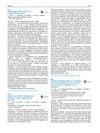 November 2013 in “Annales de Dermatologie et de Vénéréologie”
November 2013 in “Annales de Dermatologie et de Vénéréologie” Cinnamon essential oil can cause severe or unusual skin reactions, with cinnamaldehyde being the main allergen.

Some plant-based ingredients may help with hair growth and care, but more research is needed to confirm their effectiveness.
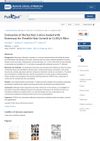 1 citations,
March 2023 in “PubMed”
1 citations,
March 2023 in “PubMed” Rosemary hair lotion significantly promotes hair growth and could be a potential alternative to commercial hair growth products.
 January 2025 in “International Journal for Research in Applied Science and Engineering Technology”
January 2025 in “International Journal for Research in Applied Science and Engineering Technology” Eclipta alba promotes hair growth and supports liver health.
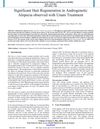 May 2024 in “International journal of science and research”
May 2024 in “International journal of science and research” Unani treatment significantly regrows hair in young adults with androgenetic alopecia.
 12 citations,
November 2020 in “Molecules”
12 citations,
November 2020 in “Molecules” Carvone helps treat skin issues by reducing melanin and stopping harmful cell growth.
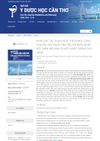 May 2023 in “Tạp chí Y Dược học Cần Thơ”
May 2023 in “Tạp chí Y Dược học Cần Thơ” The shampoo with grapefruit peel and Gleditsia sinensis helps mice grow hair faster, more, and longer.
 19 citations,
July 1993 in “Journal of Applied Toxicology”
19 citations,
July 1993 in “Journal of Applied Toxicology” Different oil products cause varying levels of skin irritation in mice, which could potentially lead to tumors.
10 citations,
April 2022 in “Critical reviews in food science and nutrition” Skin odorant receptors respond to flavors and could be targeted to improve skin health and treat diseases.
6 citations,
December 2017 in “Journal of Drug Delivery and Therapeutics” Arnica Hydrogel may be a better, non-greasy option for treating hair loss.
 2 citations,
July 2022 in “PubMed”
2 citations,
July 2022 in “PubMed” Coconut oil helps with brittle hair and infestations, castor oil may improve hair shine, and argan oil lacks evidence for hair benefits.
 June 2024 in “Pharmacon Jurnal Farmasi Indonesia”
June 2024 in “Pharmacon Jurnal Farmasi Indonesia” A 1:3 ratio of virgin coconut oil to candlenut oil is best for promoting hair growth.
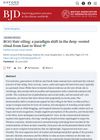 June 2024 in “British Journal of Dermatology”
June 2024 in “British Journal of Dermatology” Hair oiling has become popular in the West due to globalization and social media.
 May 2024 in “Journal of medicinal food”
May 2024 in “Journal of medicinal food” Jojoba oil has many uses beyond skincare, including health benefits and pharmaceutical applications.
 December 2023 in “Biological & pharmaceutical bulletin”
December 2023 in “Biological & pharmaceutical bulletin” IPM enhances skin penetration of hydrophilic drugs.
December 2021 in “Jurnal Farmanesia” The document does not state whether Virgin Coconut Oil or Palm Kernel Oil affects rabbit hair growth.
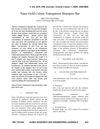 July 2019 in “Iconic Research And Engineering Journals”
July 2019 in “Iconic Research And Engineering Journals” The shampoo bar with Aloe vera and cinnamon oil improved hair health and protected against fungi without causing skin irritation.
 59 citations,
August 2010 in “Journal of The American Academy of Dermatology”
59 citations,
August 2010 in “Journal of The American Academy of Dermatology” Certain hairstyles and less hair oil use in African American girls can lead to scalp conditions like traction alopecia and seborrheic dermatitis.





















